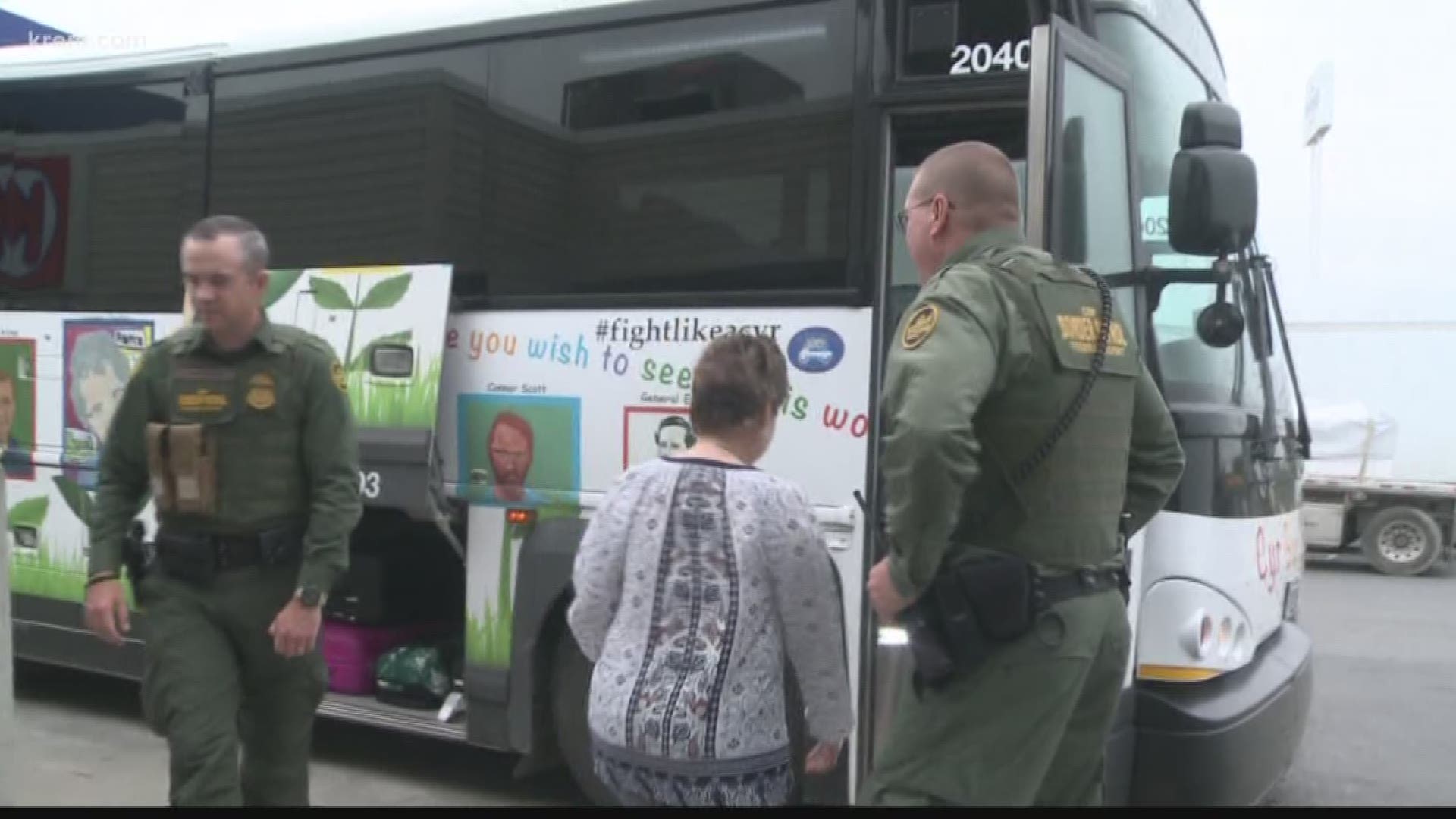SPOKANE, Wash. — As the conversation continues into how Customs and Border Patrol officers interact with people traveling there are questions of how far their reach actually goes.
More outrage was sparked this weekend surrounding the practice of Border Patrol agents inspecting buses for illegal immigrants after a comedian’s post about his interaction with officers in Spokane went viral.
A majority of the U.S. population is living within what some refer to as the ‘border zone’. The Supreme Court ruled Customs and Border Patrol agents can search and investigate illegal immigration within the United States up to 100 miles inland from every border and port of entry.
According to the ACLU, this means two-thirds of the people in the U.S. live in the border zone. Some of the major travel destinations and densely populated cities like Seattle, New York, Los Angeles and Chicago are included in it. Spokane is just within this area at about 90 miles from the Canadian border.
The Immigration and Nationality Act Section 8 Part 3 says, “Within a reasonable distance from any external boundary of the United States, to board and search for aliens any vessel within the territorial waters of the United States and any railway car, aircraft, conveyance, or vehicle, and within a distance of twenty-five miles from any such external boundary to have access to private lands, but not dwellings, for the purpose of patrolling the border to prevent the illegal entry of aliens into the United States."
This is interpreted to mean immigration officers and employees can set up checkpoints to stop and search cars, board and search buses, trains and planes. It also allows within a distance of 25 miles of a border, agents can have access to private lands, but not homes.
A Spokane Border Patrol spokesperson said they focus on buses in the Spokane area, because there is a possibility of I-90 becoming a high trafficking area. Also buses are not monitored as closely as other means of transportation. This could make it easier to smuggle drugs, people and contraband.
In other areas of the country, Border Patrol tends to focus on different forms of transportation depending on their location. For example, on the southern border they may set up more check points to encounter drivers.
The debate continues between immigration advocates and government agencies on what should be legal in the border zone. Because there are so many people living and traveling in the border zone finding common ground may be a difficult task.

